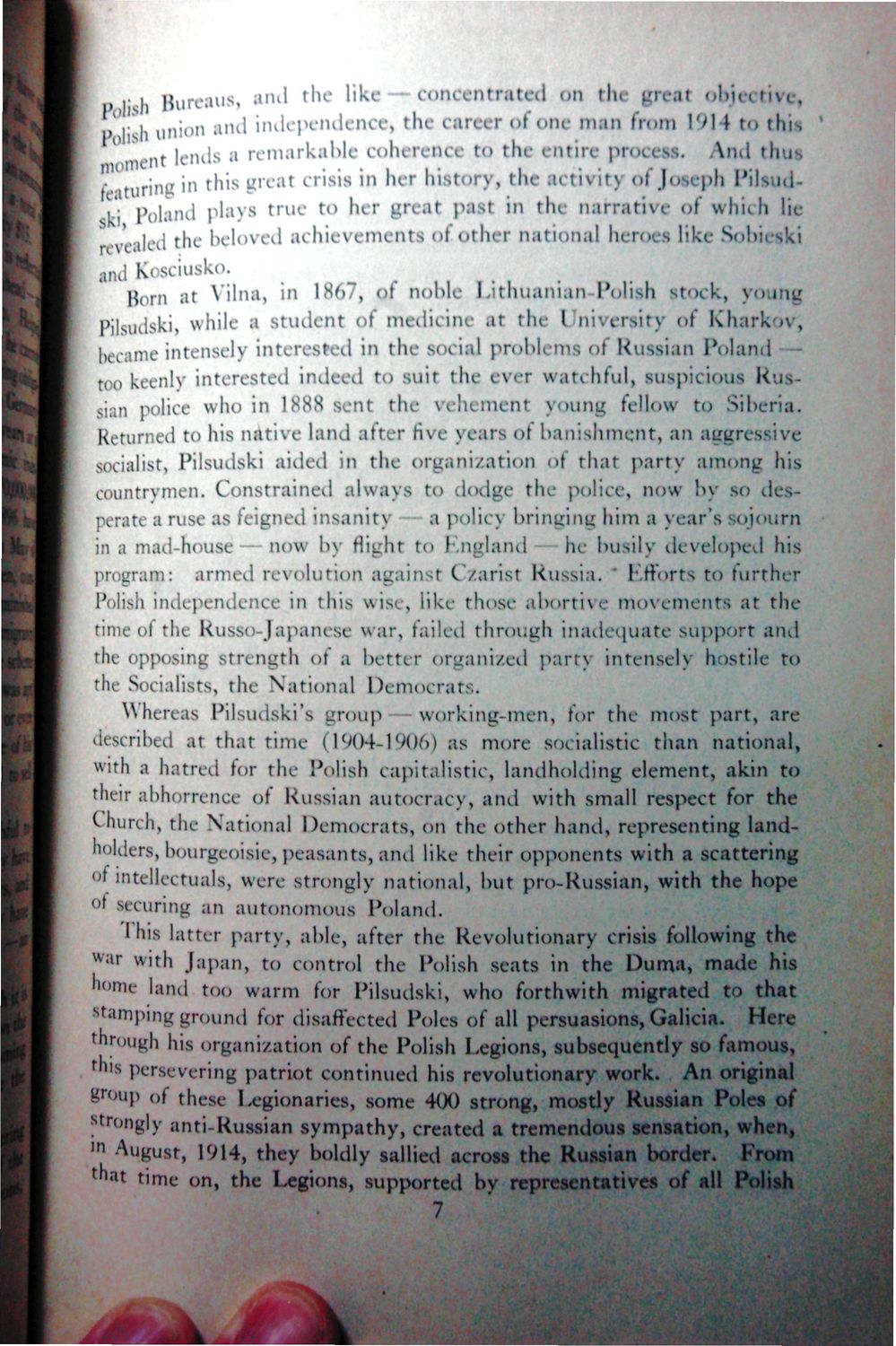| |
| |
Caption: War Publications - WWI Compilation 1923 - Article 24
This is a reduced-resolution page image for fast online browsing.

EXTRACTED TEXT FROM PAGE:
Bureaus, and the like concent rain I mi tin great obj< " v . . Polisl p°r h union ami independence! the career of'mu nun horn M I to tin, ° »nt lends a remarkable coherence to the entire process. And thus ( turing in this great crisis in her history, the activity of Joseph Pilsudk' Poland plays true to her great past in the n.irrative of which li« Sealed the beloved achievements of other national heroes like Sobieski and Kosciusko. Horn at Vilna, in 1867, of noble Lithuanian Pulish stock, young Pilsudski, while a student of medicine at the University of Kharkov, became intensely interested in the sex ial problems of Russian Poland too keenly interested ind< d to suit the ever watchful, siispicious Russian police who in 188.X sent the \ lament young fellow to Siberia. Returned to his native land after five years of banishment, an aggressive socialist, Pilsudski aided in the organization of that party among his countrymen. Constrained always to dodge the police, now by so desperate a ruse as feigned insanity — a polies bringing him a scar's mourn in a mad-house—now by flight to Kngland he busily developed his program: armed revolution against C/arist Russia. KflfbrtS to further Polish independence in this wise, like those aborth movements at the time of the Rus Japanese- war, failed through inadequate support ami the opposing strumth of a better organized party intensely hostile to the Socialists, the National Democrats. Whereas Pilsudski s group working-men, for the most part, are described at that time (1904-1906) as more socialistic than national, with a hatred for the 'Polish capitalistic, landholding element, akin to their abhorrence ot Russian autocracy, and with small respect for the Church, the National Democrats, on the other hand, representing landholders, bourgeoisie, peasants, and like their opponents with a scattering of intellectuals, were strongly national, but pro-Russian, with the hope () t securing an autonomous Poland. I his latter party, able, after the Revolutionary crisis following the w ar with Japan, to control the Polish seats in the Duma, made his home land too warm for Pilsudski, who forthwith migrated to that damping ground for disaffected Poles of all persuasions, Galicia. Here through his organization of the Polish Legions, subsequently so famous, rh Js persevering patriot continued his revolutionary work. An original 400 strongly anti-Russian sympathy, created a tremendous sensation, when, ln August, 1914, they boldly sallied across the Russian border. From th «it time on, the Legions, supported by representatives of all Polish 7
| |